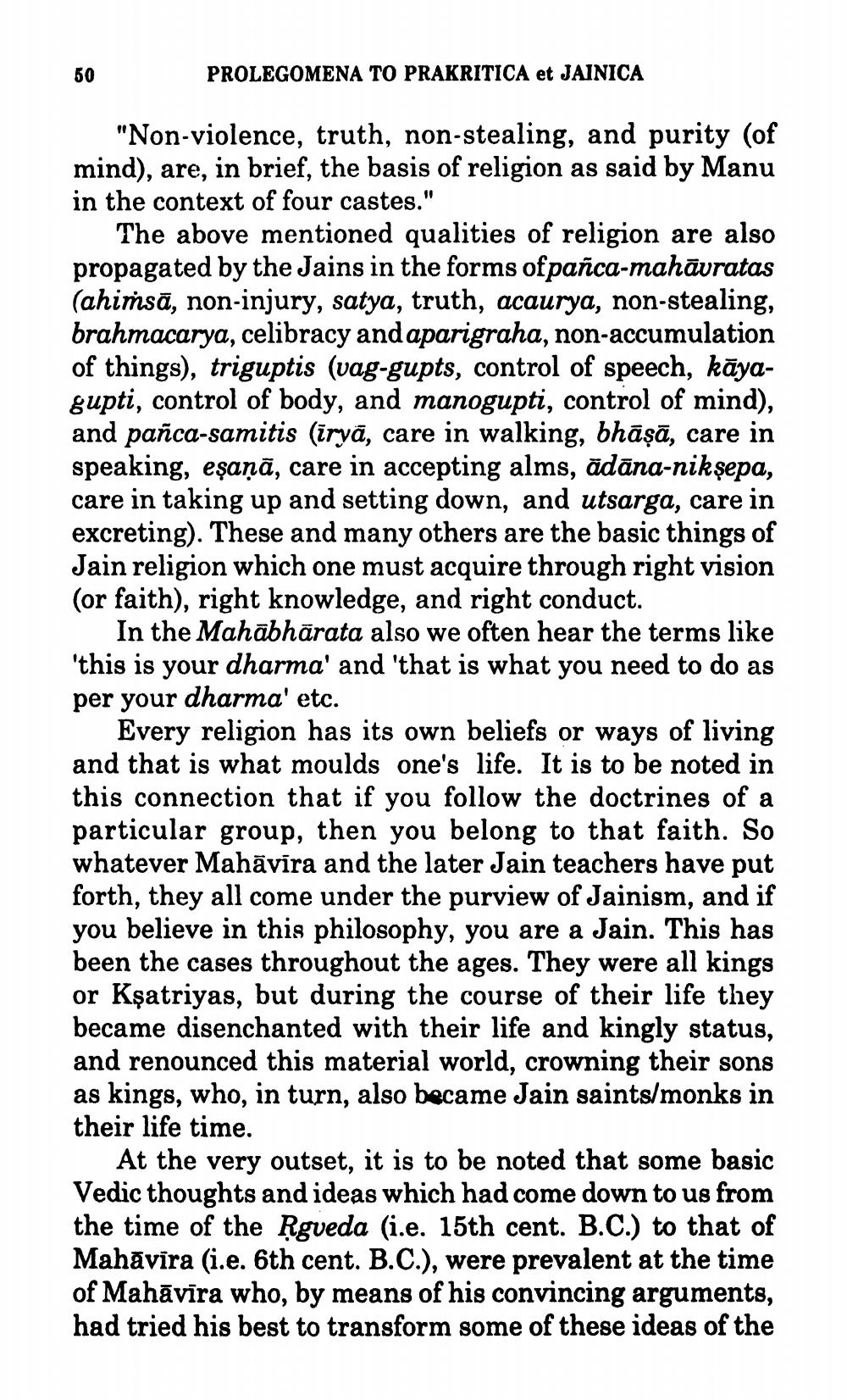________________
50
PROLEGOMENA TO PRAKRITICA et JAINICA
"Non-violence, truth, non-stealing, and purity (of mind), are, in brief, the basis of religion as said by Manu in the context of four castes."
The above mentioned qualities of religion are also propagated by the Jains in the forms of pañca-mahāvratas (ahiṁsā, non-injury, satya, truth, acaurya, non-stealing, brahmacarya, celibracy and aparigraha, non-accumulation of things), triguptis (vag-gupts, control of speech, kāyagupti, control of body, and manogupti, control of mind), and pañca-samitis (iryā, care in walking, bhāṣā, care in speaking, eşaņā, care in accepting alms, ādāna-niksepa, care in taking up and setting down, and utsarga, care in excreting). These and many others are the basic things of Jain religion which one must acquire through right vision (or faith), right knowledge, and right conduct.
In the Mahābhārata also we often hear the terms like 'this is your dharma' and 'that is what you need to do as per your dharma' etc.
Every religion has its own beliefs or ways of living and that is what moulds one's life. It is to be noted in this connection that if you follow the doctrines of a particular group, then you belong to that faith. So whatever Mahāvīra and the later Jain teachers have put forth, they all come under the purview of Jainism, and if you believe in this philosophy, you are a Jain. This has been the cases throughout the ages. They were all kings or Kşatriyas, but during the course of their life they became disenchanted with their life and kingly status, and renounced this material world, crowning their sons as kings, who, in turn, also became Jain saints/monks in their life time.
At the very outset, it is to be noted that some basic Vedic thoughts and ideas which had come down to us from the time of the Rgveda (i.e. 15th cent. B.C.) to that of Mahāvīra (i.e. 6th cent. B.C.), were prevalent at the time of Mahāvīra who, by means of his convincing arguments, had tried his best to transform some of these ideas of the




